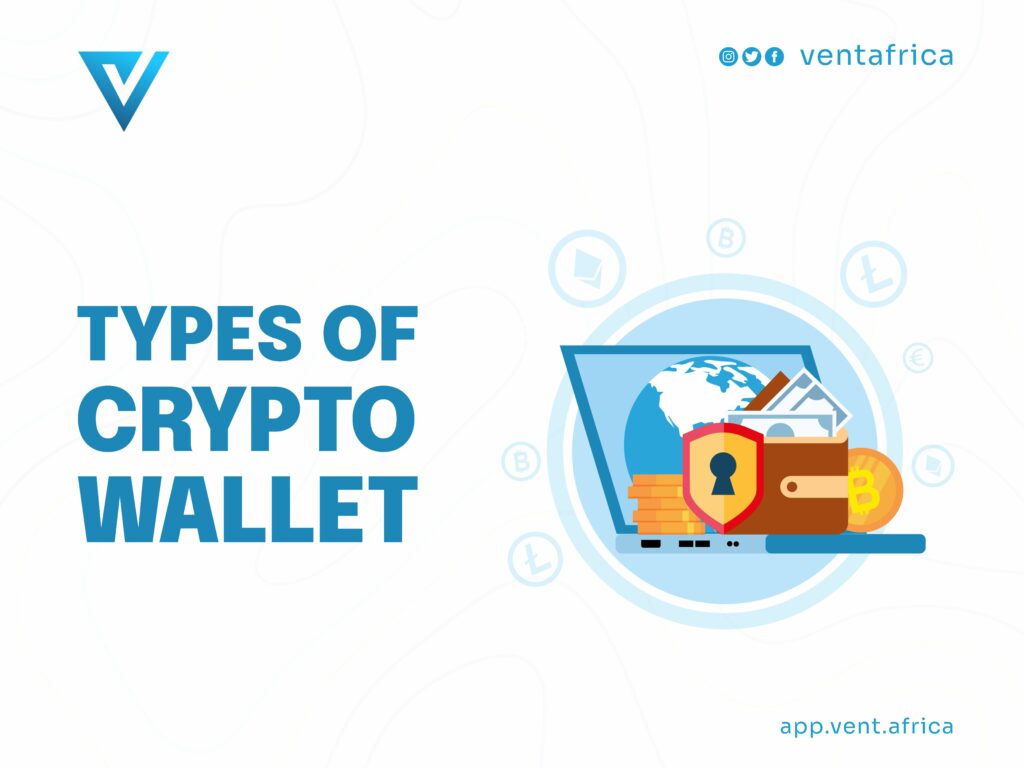Different Types of Crypto Wallets — Explained
As a crypto holder, securing your investments is as important as making such investments in the first place. It would be best to secure your assets using a high-security crypto wallet. However, one mistake people often make is holding their assets on an exchange. To be safe, you should only use an exchange for buying and selling or holding your trading capital or short-term investments.
READ MORE: Common Crypto Mistakes You Should Avoid
However, there are different types of crypto wallets, each with unique uses and pros and cons. It is necessary to make the right choice of what type of wallet to use. This post will examine the various types of crypto wallets to help you understand how they work. We hope that by the time you’re done reading, it will be easier to pick the most suitable for your needs.

THE GIST
- A crypto wallet allows users to interact with the blockchain to access, view, manage and transact their crypto assets.
- A wallet may be: hot or cold; custodial or non-custodial; a software, hardware, or paper wallet.
- Hot wallets can be connected to the internet, while cold wallets are completely offline.
- Custodial wallets entrust a user’s private keys to the wallet provider. In contrast, non-custodial wallet users retain exclusive access to their private keys.
- You are not limited to using only one type of wallet and should find the combination that works for you.
WHAT ARE CRYPTO WALLETS?
A cryptocurrency wallet securely stores the passkeys required to access funds on the blockchain or sign for cryptocurrency transactions. They are important because they allow users to interact with the blockchain.
In the real sense, cryptocurrencies are not “stored” in wallets. Cryptocurrencies are bits of data stored and scattered across the blockchain. What a wallet does is find all the bits of data associated with your public address and provide an interface that lets you access your crypto. Using a wallet, users can view their assets and carry out transactions.
Notably, there are different categories of crypto wallets. In this article, we’ll be discussing the various types of crypto wallets under three headings:
- Hot vs. Cold Wallets.
- Custodial vs. Non-custodial Wallets.
- Software vs. Hardware vs Paper.
HOT vs. COLD WALLETS
Internet connectivity is what defines whether a wallet is hot or cold. Hot wallets are crypto wallets that are connected to the internet. In contrast, cold wallets are entirely offline (i.e., not connected to the internet).
The advantage of hot wallets is that they are generally easy to use. Since the funds in the wallet are already connected to the internet, transacting is easier and more convenient. In fact, most crypto wallets are hot wallets. These include desktop, mobile, and web/browser wallets. However, the fact that hot wallets are connected to the internet also makes them less secure as they are more vulnerable to attacks by hackers.
On the other hand, cold wallets keep your funds more secure since they are virtually immune to being hacked. However, they tend to require more technical know-how for their use. Equally, using a cold wallet would mean you have to take the extra step of bringing your funds online whenever you want to transact with them. As such, they’re typically more suitable for users with more experience or those with large crypto holdings.

CUSTODIAL vs. NON-CUSTODIAL
Whether a wallet is custodial or non-custodial depends on who is responsible for securing the private keys.
Where the wallet is a custodial wallet, the wallet provider (e.g., the wallet developer or crypto exchange) manages and protects users’ private keys. The wallet provider may use the keys to sign initiated transactions on behalf of the user. A custodial wallet makes it easy for a user to simply log in and start transacting right away. This is a great option for those who value ease and are not too concerned with entrusting their private keys to a third party. However, the downside is that if the wallet provider is hacked or goes bankrupt, you may lose your funds.
Where the wallet is a non-custodial or self-custody wallet, the user has complete control over the account as he retains exclusive access to the private keys. This is a more private and secure option. Users can easily recover their funds if the wallet provider is hacked or bankrupt. Similarly, the wallet provider can’t shut down or restrict a user’s account. However, the user must take charge and exercise great care in securing his private keys, as if they are lost or compromised, his funds can become irretrievable or get stolen.
SOFTWARE vs. HARDWARE vs. PAPER
Software wallets are generally hot wallets. They include applications for desktop and mobile devices (Android or iOS). Mobile wallets, desktop wallets, and web/browser wallets all fall within this category.
Hardware and paper wallets are cold wallets. Although they fall on opposite ends of technological advancement, they are both highly secure. On the one hand, a paper wallet involves writing down or printing private keys on a piece of paper and storing it safely. On the other hand, a hardware wallet is a physical device (resembles a USB drive) that allows secure offline storage of private keys unless plugged into a computer.
FINAL NOTES
All the various types of wallets discussed above have their strengths and weaknesses. Ideally, you may pick whatever you find most convenient depending on your situation or needs. It would be best to keep in mind that you aren’t restricted to using one type. You may find the combinations that suit you best. For example, you can keep some funds in a hot wallet for your day-to-day use or trading while maintaining your long-term investment or larger sums in a cold wallet.

VENT AFRICA: CRYPTO-TO-CASH MADE EASY
Vent Africa is a reputable off-ramp platform that makes crypto-to-cash transactions more effortless than ever. With the best rates at no fees and your security guaranteed, there’s no better choice for transacting crypto smoothly than Vent Africa.
Read more: 5 Reasons to Trade with Vent Africa.

One Comment